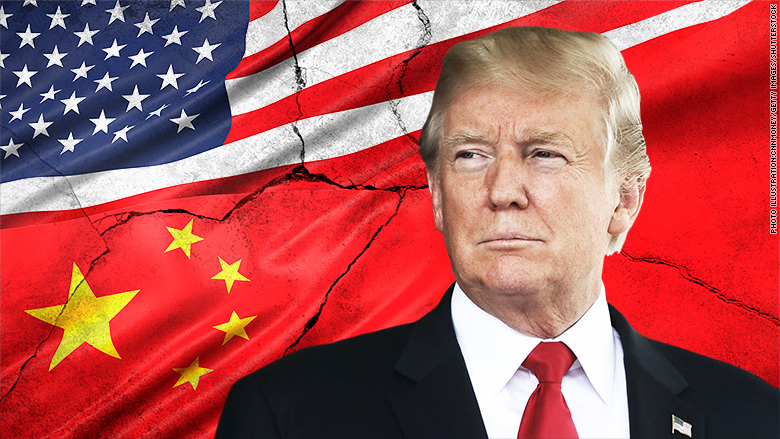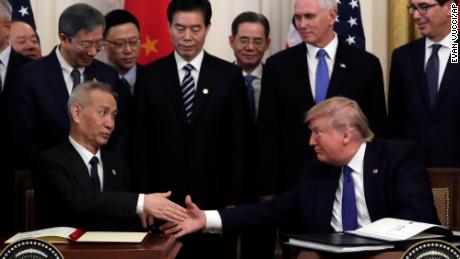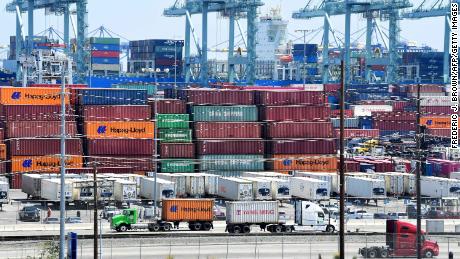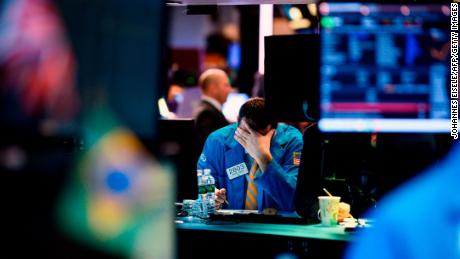Beijing (CNN)It's headline news in the rest of the world, but in China, US President Donald Trump's threat to sharply raise tariffs on $200 billion of Chinese goods has barely registered a mention on the news agenda.
Ahead of Thursday's meetings in Washington between the Trump administration and Beijing's negotiators, Chinese censors have stepped up efforts to suppress any voices not in sync with the official line.
As recently as last week, both sides were expressing optimism over the "substantial progress" made in "productive talks." Trump himself even hinted at an upcoming visit to the US by Chinese President Xi Jinping to sign a bilateral trade deal.
But matters took a surprising turn last Sunday night when the US President fired off a pair of tweets complaining about the pace of negotiations and threatening to raise the tariffs from 10% to 25%.
China's strictly-controlled state media still has not reported the detail of the tweets, nor the stern remarks by top US trade negotiators accusing their Chinese counterparts of "reneging" on previously agreed measures.
Instead, TV, newspapers and online media sites are suddenly full of good news about the Chinese economy, potentially steeling citizens for any bad news ahead of Trump's tariff deadline on Friday.
While Foreign Ministry spokesman Geng Shuang obliquely acknowledged Trump's online posts at a press briefing Monday, government censors were busy blocking screenshots of the tweets across Chinese social media. Most discussions on this sensitive topic were also blocked.
As China's stock indices plummeted more than 5% by the end of Monday's trading, the country's financial analysts also took great pains to avoid mentioning Trump's tweets. They used vague terms such as "external factors" to explain the slump.
By Tuesday afternoon, defying predictions, the government had announced that its top trade negotiator, Vice Premier Liu He, would head to the US for an eleventh round of talks starting Thursday, a day later than originally scheduled.
Liu's trip had been in serious doubt after Trump's tweets. Xi's decision to dispatch him as planned was seen as a rare instance where the leadership abandoned its longstanding public stance of "not negotiating under threats."
As the news spread about Liu's US visit, state media seemed to have finally received its cue from the propaganda authorities on how to respond to the Trump administration.
Reports and commentaries started to appear touting China's economic might and, without a trace of irony, reaffirming the government's determination not to yield to pressure in trade talks with the US.
"Resilience" suddenly became a buzzword in headlines. The People's Daily, the ruling Communist Party's mouthpiece, published a front-page article entitled "China's Economy: Full of Resilience" on Tuesday, citing strong economic data.
Not to be outdone, the state-run Xinhua news agency soon ran a similar story. National broadcaster CCTV aired a five-minute report in its flagship evening newscast under a similar banner, complete with a video montage of crisscrossing high-speed trains, automated factory assembly lines and busy container ports.
Chinese leaders appear to have adopted a two-pronged approach in the wake of Trump's unexpected Twitter threat.
Keenly aware of the potential economic consequences, they seem to want to avoid a total breakdown in trade negotiations with the US while trying to project an image of strength to a domestic audience, whose nationalistic instincts have been honed by the party over the years.
State-run social media account Taoran Notes, under the Economic Daily newspaper, went further than most other outlets, declaring: "Things that we think are advantageous for us, we will do it without anyone asking; things that are unfavorable to us, we won't budge no matter how you ask -- don't even think about it."
After the government on Wednesday night declared its intention to retaliate against any new US tariffs, Taoran Notes quickly posted a new commentary, evoking memories of the military clashes between China and the US during the Korean War.
"We are no stranger to the scenario of fighting while negotiating," the commentary said.























